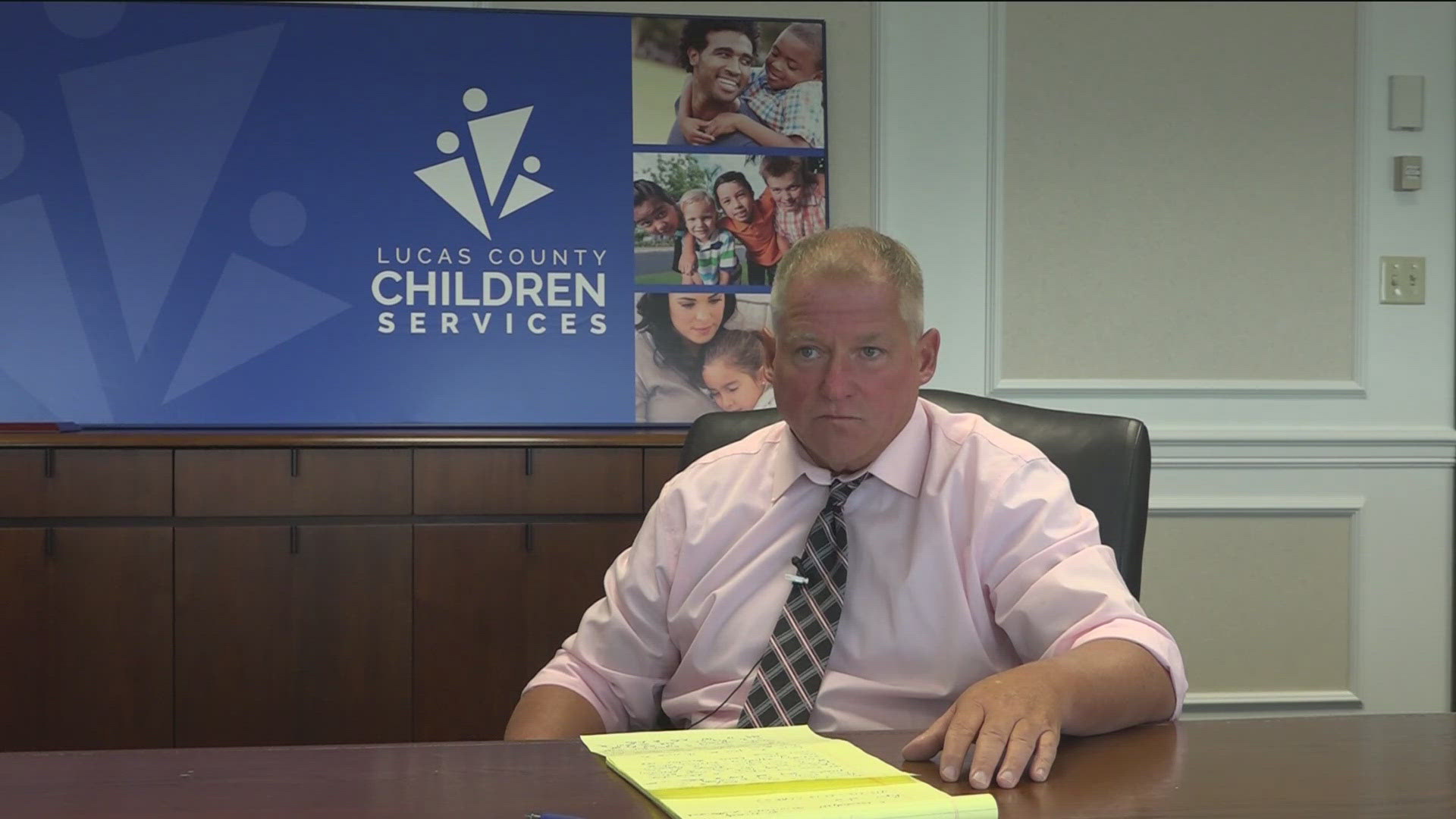TOLEDO, Ohio — Lucas County voters in November will see a 1.5-mill levy on the ballot for Lucas County Children Services.
LCCS Executive Director Randy Muth said the agency is in dire need of money, so if this new levy doesn't pass, there will be financial cuts. Since the agency is predicted to be operating in the red by the end of 2025, Muth said it's necessary to ask taxpayers to help in the short term.
"While this is no doubt an extraordinary investment, it's a lot of upfront money. It will pay off in the long run," Muth said.
He explained how children, through no fault of their own, are taken into the system. While some don't come from abusive situations, there are others who need to be rescued and receive special care. A new federal law, the Family First Prevention Services Act, has changed child placement rules and specific requirements for those special children.
Muth said he's happy the government is demanding better care for the kids, but not with how it's going about it.
"The federal government did not provide any funding for the start-up costs," Muth said. "The first five years before this federal law we spent about $12 million a year to house these children."
He said since the act was put into place, foster child placement costs rose to $15.3 million, then in 2023 to $19.1 million.
"If everything goes the way the first six months of this year, we'll spend $21 million," Muth said.
The agency's second-largest expense jumped from $12 million to over $21 million in only two years. But, with LCCS reporting from 2022 its operating budget at more than $53 million, these costs will wipe out the funds. Muth said combining these three levies, will bring in just over $40 million a year. Currently, LCCS collects nearly $28 million a year.
"We can't make it to 2025. our best projections show us running out of money under this current funding structure in December of next year," Muth said.
The 10-year levy is 1.85-mill and the five-year levy is 1.8-mill. But with the need for more funds, the new levy will be a 1.5-mill levy tacked on the 1.8-mill levy at five years. So, taxpayers would ultimately be voting on a 3.3-mill levy aimed at generating nearly $35 million a year. It would cost a $100,000 homeowner $102.40 in taxes yearly.
Muth said there's no other way around it to help the agency's budget, having run out of things to cut.
"Every nondiscretionary expense we have put on hold," he said. "If it doesn't pass, I don't think there's any way to avoid saying that children may not get the services they require."
He added that the goal of the levy is to help fill in the gap and is not meant to be a permanent part of the budget.
"Either state and federal mitigation strategies kick in, or the underlying concept of (the Family First Prevention Services Act) starts to work. We think and it's my sincere hope that this levy will not be renewed in five years," Muth said.

